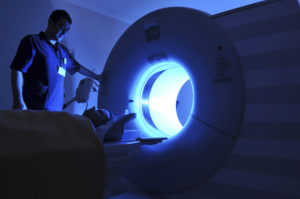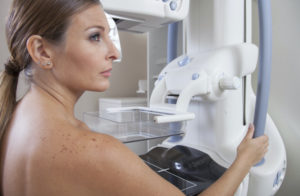BRCA and Double Mastectomies
 The news media pretty thoroughly covered the news of Angelina Jolie’s breasts when she had a prophylactic mastectomy after finding she carried a BRCA gene mutation. Even we covered it, and while we are passionate about women’s health, we usually don’t focus in our blog on just one person’s breasts. But her story was important and helpful to many women by opening the dialog about genetic breast cancers and their management.
The news media pretty thoroughly covered the news of Angelina Jolie’s breasts when she had a prophylactic mastectomy after finding she carried a BRCA gene mutation. Even we covered it, and while we are passionate about women’s health, we usually don’t focus in our blog on just one person’s breasts. But her story was important and helpful to many women by opening the dialog about genetic breast cancers and their management.
BRCA gene mutations are rare but potent – a mutation in one of these 2 genes dramatically increases the risk of breast and ovarian cancers. If there is a history of breast cancer in your family, it’s good to know your risk. Furthermore, it’s important to know when to get tested for the BRCA genetic mutation. Not everyone needs to go through this expensive testing process, and guidelines have been developed to help sort out who will benefit most.
A genetic counselor is the person to turn to if you have questions about your personal and family risk. If you qualify for genetic testing, your genetic counselor and doctor can help explain the different options for management once your specific genetic findings are known. Ms. Jolie opted for a double mastectomy – she took aggressive action to manage the increased risk of breast cancer she faced with her particular genetic mutation. Other options include certain medications for prevention and performing screening more frequently.
A recent study published in the British Medical Journal evaluated breast cancer patients with BRCA 1 or 2 mutations. The study found women could cut their long-term risk of dying from breast cancer by undergoing a preventative double mastectomy. Even if cancer was only detected and treated in one breast, the removal of both breasts doubled the survival rates. While the study was small (390 women were included) the results are promising. Further studies are needed to confirm these results in larger groups of women.
Research is key to moving forward in the treatment of breast cancer for all women – and in long term management of women with genetically related breast cancers. Thanks to Ms. Jolie for bringing the problem into the public light.
Image credit: BRCA1 de by Kuebi via Wikimedia Commons Copyright Creative Commons Attribution-Share Alike 3.0 Unported
Originally published 2/26/14 on mammographykc.com.





